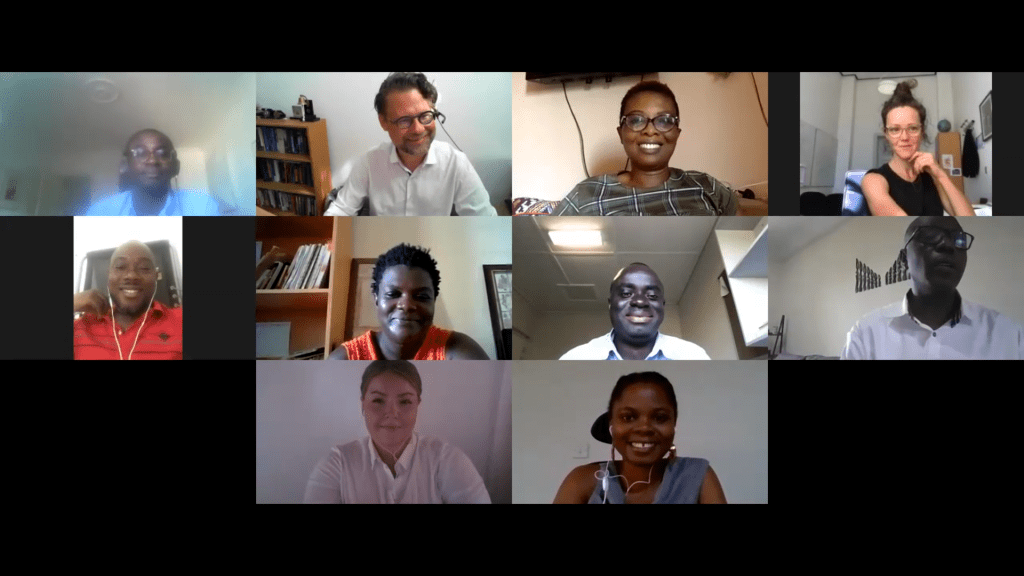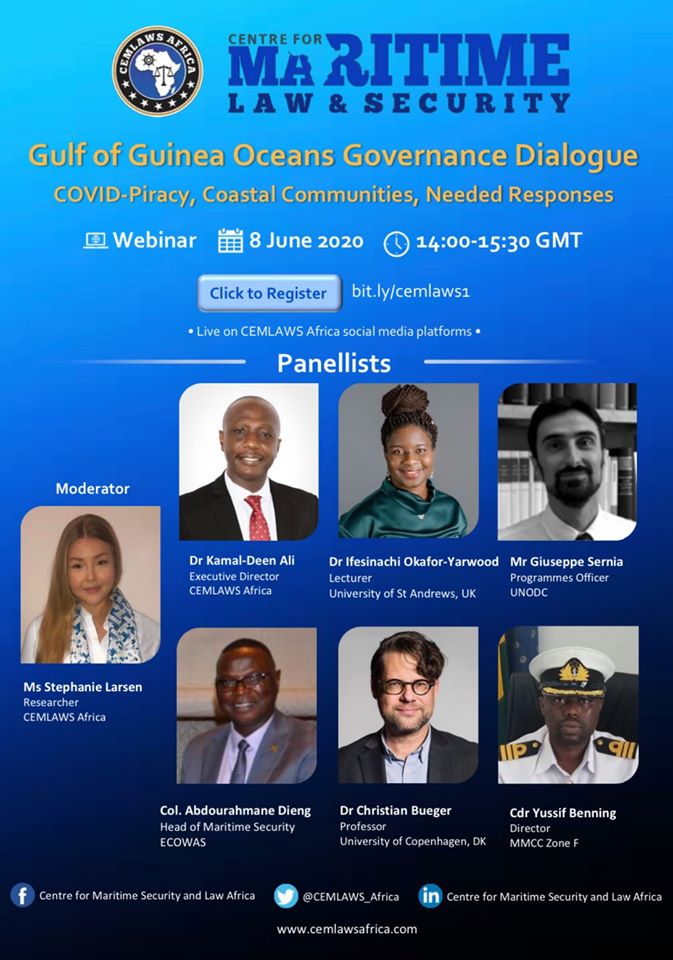Our new research project AMARIS, Analyzes MARitime InSecurity in Ghana. Across 4 work packages the participants based in Copenhagen and Accra investigate expressions of blue crime in Ghana, national maritime security governance as well as capacity building assistance. The project is organised in three phases. To complete phase 1 the inception phase, we held our first larger meeting – the kick off day – on 25.06.2020. The main discussions were devoted to research methodology and data gathering strategy for the upcoming field phase.

